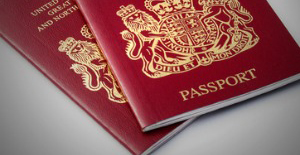Could recruiting overseas-trained British GPs solve the recruitment crisis?


Passport – banner – 330×170
The current UK medical universities’ ruthless selection process is turning away many potential doctors and GPs due to the lack of places available on medical courses. Hence, hundreds of UK nationals every year are flocking to study medicine in English in European universities.This has been supplying hundreds of British doctors back into the NHS and has potential to be a hook for recruitment by GPs.
British citizens who train abroad are much easier to recruit and attract to general practice (or, as it is referred to in Europe, ‘family medicine’) than non-EEA nationals who need a visa.
The general stigma in medical schools abroad discourages medical students from specialising in primary care. A lot of medical school professors disparage the specialty claiming it is not a good use of medical university resources. However, there are many positive attributes of working as a GP in the UK, and these should be used to lure graduates toward the speciality. Many of the UK nationals who studied abroad are generally older than usual and have families, so the flexibility and fewer antisocial shifts are much more appealing to them than hospital shifts.
Students must be informed that general practice is far more highly regarded, respected and even well-paid compared with the attitude in Europe.
UK trained medical graduates are being actively sought after by countries like Spain, Sweden and Australia. However, British nationals who studied abroad are very suitable as potential GP recruits in the UK as they speak English fluently, understand British culture and integrate into the system easily. Practice can target these graduates by approaching student recruitment agencies that look after British students during their medical studies abroad. Some graduates begin thinking about their path to specialty in their final years of medical school, while many specialise in family medicine in Europe then return to the UK to work as GPs.
While the Government struggles with its slow bureaucracy and immigration laws, we can begin attracting the hundreds of foreign-educated UK doctors to the GP specialty and fix this crisis from within.
Dr Sam Elmais is an FY2 doctor training in Bournemouth, entering general practice training next year. He is a director of Medlink, an agency that supports UK nationals studying abroad









